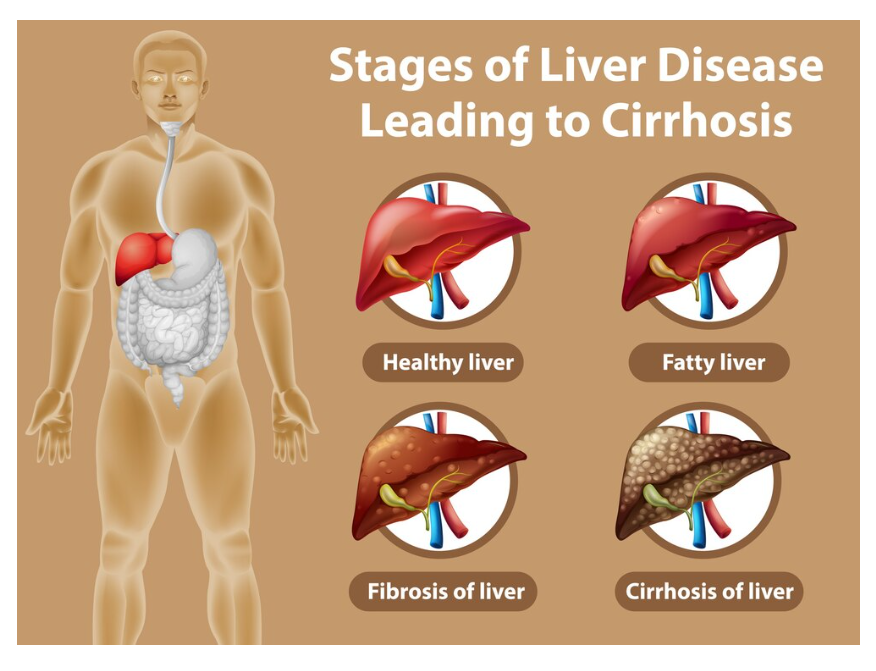
Complications of Advanced Fatty Liver Disease
Introduction
Fatty liver disease can develop without noticeable symptoms at first, but as it progresses, it poses serious risks. Early intervention is essential for preventing complications. Let’s take a look at the major risks associated with advanced fatty liver disease and ways to manage them.
1. Liver Cirrhosis
As fatty liver disease advances, it can lead to liver cirrhosis. This occurs when healthy liver tissue is replaced by scar tissue, impairing the liver’s ability to function. Cirrhosis can cause liver failure, a serious condition that demands immediate medical attention. Cirrhosis may also lead to complications such as bleeding, infections, and liver cancer.
2. Liver Cancer (Hepatocellular Carcinoma)
Chronic inflammation and scarring from fatty liver disease can increase the risk of liver cancer, specifically hepatocellular carcinoma. This type of cancer is difficult to detect early, so it’s crucial to monitor liver health regularly. Early detection through screening tests can improve the chances of successful treatment and a better outcome.
3. Portal Hypertension
As the liver becomes scarred, blood flow through the organ becomes obstructed, leading to increased pressure in the portal vein. This condition, known as portal hypertension, can cause dangerous complications such as varices (enlarged veins) that may rupture and cause severe bleeding. It can also lead to ascites, the accumulation of fluid in the abdomen, which can cause discomfort and require medical intervention.
4. Hepatic Encephalopathy
A liver struggling to function properly may fail to detoxify harmful substances in the body. As a result, toxins can build up in the bloodstream, leading to hepatic encephalopathy. This condition can cause confusion, disorientation, and memory problems. If left untreated, it can escalate into more severe symptoms, including coma, requiring urgent care.
5. Liver Failure
In the most severe cases, fatty liver disease can progress to liver failure, where the liver can no longer perform its essential functions. Liver failure is life-threatening and requires immediate medical intervention, often in the form of a liver transplant.
Prevention and Management
Preventing complications of advanced fatty liver disease starts with early detection and intervention. Adopting a healthy lifestyle is key to managing the disease and reducing the risk of progression. Eating a balanced diet, engaging in regular exercise, and avoiding alcohol are important steps in managing liver health. Weight loss and controlling underlying conditions like diabetes can also help prevent further liver damage.
Consult Your Healthcare Provider
If you have fatty liver disease or are at risk, it’s crucial to work closely with your healthcare provider. Regular check-ups and screening tests help monitor your liver health, while adhering to your doctor’s recommendations can help prevent complications. Your healthcare provider can offer personalized advice on managing fatty liver disease and reducing its impact on your overall well-being.
Conclusion
Fatty liver disease is a serious condition that requires proactive management to avoid complications like liver cirrhosis, cancer, and liver failure. By understanding these risks and making healthy lifestyle changes, you can help protect your liver and maintain your overall health. Early intervention and regular monitoring are key to managing this disease effectively.
To seek medical advice, always consult a Doctor.
Here are our recommended experts. Click here
To read more on Respiratory disease . Click Here

